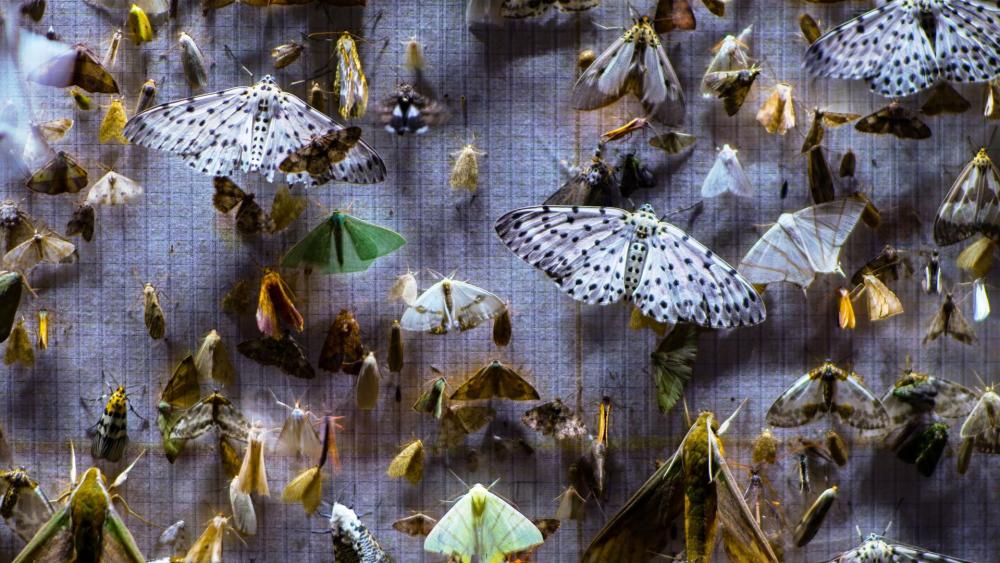Indian filmmaker Payal Kapadia, Cannes Grand Prix winner for “All We Imagine as Light,” has joined forces with a roster of South Asian documentary luminaries for a pioneering initiative called Doc Producing South.
The creative producing lab, scheduled for Sept. 1-5, in Delhi, aims to nurture documentary filmmaking talent from South Asia through an intensive peer-driven mentorship program. The initiative brings together some of the region’s most celebrated filmmakers, including Academy Award nominees Shaunak Sen (“All That Breathes”), Rintu Thomas and Sushmit Ghosh (“Writing With Fire”).
“Since I studied documentary filmmaking in Europe, I had the chance to understand how films are produced there. And yet, when it came to charting the right production path for our first film in India, we were overwhelmed and struggled a lot,” Kapadia said. “Like many documentary directors, I became a producer out of necessity. Learning production on the go is not only tough on the films, but is also a slow and isolating process.”
The lab will select six producer-director teams with feature documentary projects for the intensive workshop, which will cover proposal development, budgeting, financing, distribution strategies, and rights negotiation. The program features both in-person training and continued online mentorship extending through July 2026.
Co-founded by Anirban Dutta and Anupama Srinivasan, Doc Producing South emerged from a recognized gap in the industry. “I often saw South Asian films pitched at forums, but very few were made. I realized one of the glaring gaps was the dearth of creative producing talent in South Asia,” noted Dutta, whose film “Nocturnes” premiered at Sundance 2024 in the World Cinema Documentary Competition, where it won a special jury Award. “This initiative is being planned to bridge this gap and create capacity among the filmmaking community of non-fiction producers.”
Srinivasan, an alumna of Harvard University and FTII Pune who has been making documentaries for over two decades, added, “There are different ways to challenge the status quo of colonial and exploitative structures in the world. Making documentaries is one such way; creating forums of support for fellow filmmakers in our part of the world is another.” Her co-directed documentary “Flickering Lights” received the best cinematography Award at IDFA international competition 2023, while “Nocturnes,” which she co-directed and co-edited, received a special jury award at Sundance 2024.
The collective also includes cinematographer-producer Ranabir Das, who shot, edited and produced “A Night of Knowing Nothing” (Dir. Payal Kapadia) which won the Golden Eye Award at Cannes 2021. Under his company Another Birth, he also produced “All We Imagine as Light,” of which he was the cinematographer as well. Das stated, “The most intimidating part of the filmmaking process in India is not knowing if a film you have in mind will find the opportunity to be made. The purpose of this workshop is to help filmmakers and producers simply reach a place where they will be able to make the film on their own terms.”
Filmmaker Arya Rothe, an Indian filmmaker and co-founder of NoCut Film Collective based out of India, Italy, and Romania, is an IDA Logan Elevate awardee. Her debut “A Rifle and a Bag” received a special mention at Rotterdam 2020 and was showcased at over 50 festivals. She co-produced “Marching in the Dark,” which was nominated for the 2024 European Academy Awards. Rothe underscored the timeliness of the initiative: “In recent years, the documentary filmmaking landscape in South Asia has been shifting, and it’s become urgent to build producers within our countries and explore funding models that make us more self-reliant.”
Bhutanese director Arun Bhattarai, known for films like “Agent of Happiness,” “The Next Guardian” and “Mountain Man,” is a national film award recipient and one of the few independent filmmakers in the country. His most recent film, “Agent of Happiness,” premiered at the Sundance Film Festival and was nominated for the IDA awards. Bhattarai noted, “After spending over a decade making two feature length films, I have had a varied experience negotiating the producing landscape which I am keen to share with other filmmakers. We see more and more south Asian films globally in the last few years. But do share a common struggle to protect the beauty of our local stories while also having access to the international funds and festivals.”
Anu Rangachar, a longtime programmer at Mumbai’s MAMI who headed their international program, founded Gratitude Films in the U.S., initially partnering with LA-based ‘Deaf Crocodile’ to champion Indian arthouse cinema titles. Her production credits include “Nasir” (2020), “Rapture” (2023), and “Baksho Bondi” (2025). In 2024, she was appointed artistic director of IFFLA, where her vision continues to shape global conversations around South Asian cinema.
Sushmit Ghosh, an Academy Award-nominated, Peabody-winning filmmaker and co-founder of Black Ticket Films, described the initiative as addressing a critical need: “This forum was born out of a simple truth: that South Asian voices, especially in documentary, have long been underrepresented, not for lack of stories or vision – but due to a lack of access, mentorship and resources.” His shorts include the National Award-winning “Timbaktu” (2012) and “Dilli” (2011), and in 2023, he co-founded the Himalayan Story Lab, an incubation space for indigenous and underrepresented filmmakers from the Himalayan region.
With organizational support from Niv Foundation, Goethe Institute, and Institut Francais, applications for the program open April 30, with a submission deadline of June 15.
Read the full article here








